
MU Extension offers beef feeding financial tool
Free Excel tool lets cattle producers track input costs, calculate break-even price and ROI, and manage feeding profitability.
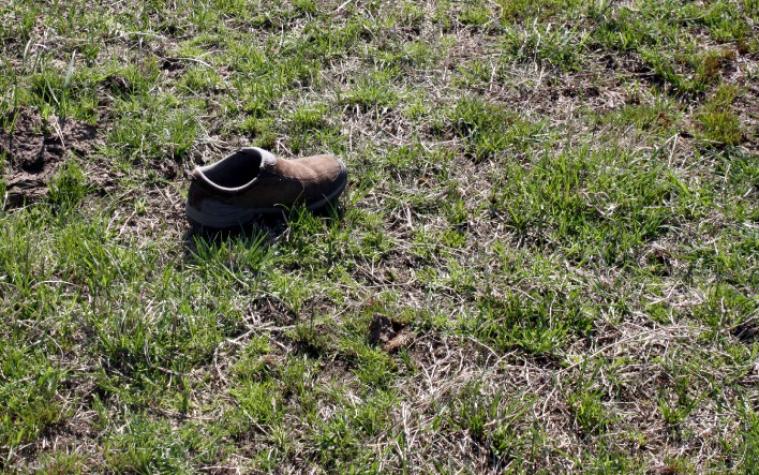
Frost-seeding legumes pays big dividends
Frost-seeding legumes boosts pasture health, lowers input costs, improves soil fertility, and supports cattle growth even in drought-prone areas.
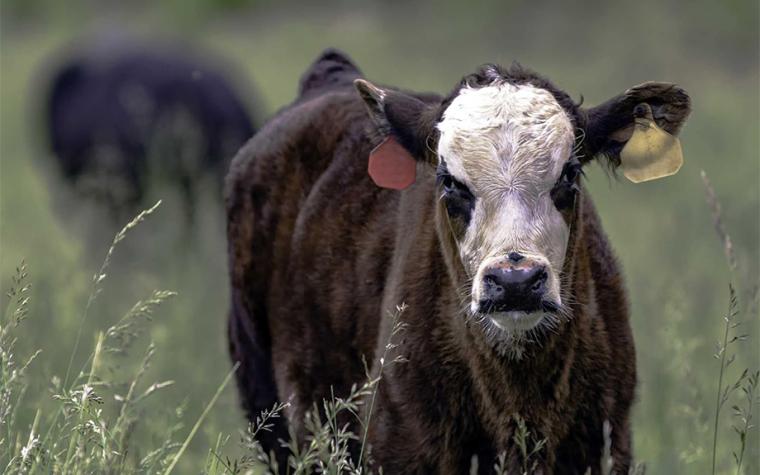
Time to rethink deworming the beef herd
SALEM, Mo. – The use of commercial livestock dewormers has paid off in terms of animal health and productivity, but it has also resulted in resistance among parasite populations. “As dewormers lose effectiveness, producers need to develop a broader strategy for managing internal parasites in their livestock,” said Eric Meusch, University of Missouri Extension livestock specialist. Resistance to deworming products
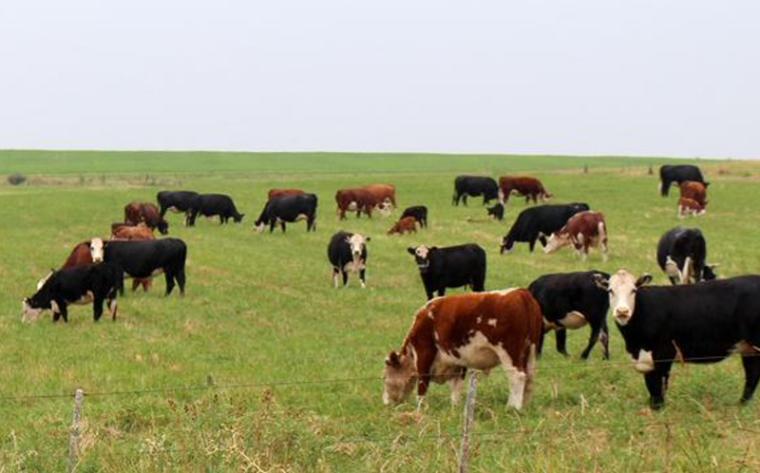
Benefits of beef cow leasing
Beef cow leasing offers producers a lower-cost way to expand, gain experience, and share risks while easing financial pressures.
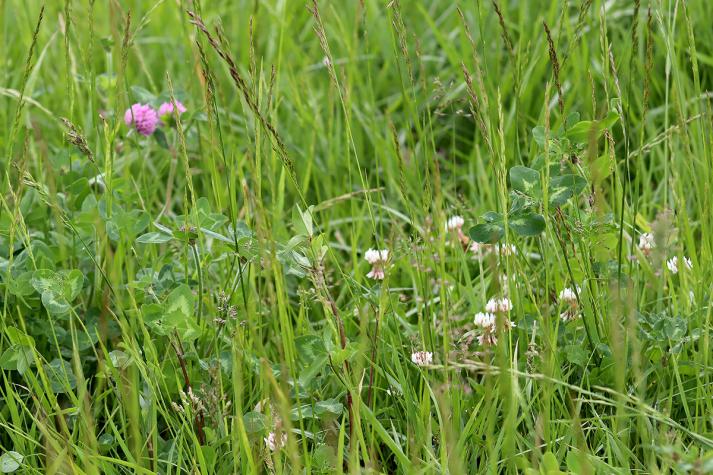
Frost seeding legumes improves pastures several ways
Frost seeding legumes boosts pasture quality, yield, and soil health by adding diversity early in the growing season.

Cattle recordkeeping system for success
Cattle producers can assess the past year’s productivity, improve herd recordkeeping and use clear ID methods.
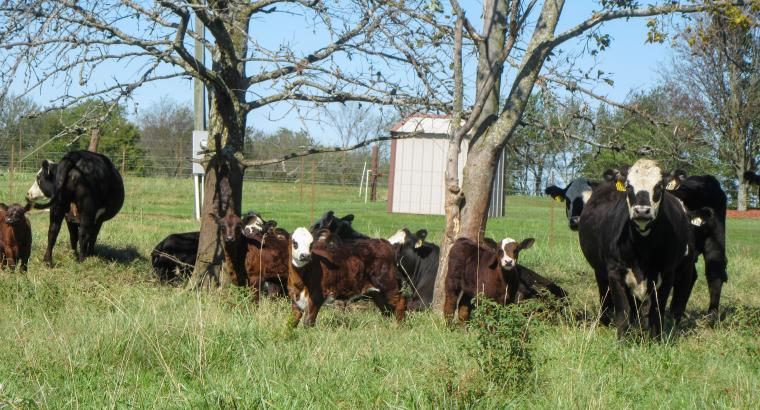
Prepare for a successful calving season
STOCKTON, Mo. – “When planning for a successful calving season, plan for everything that might happen with the goal of the cow giving birth with little difficulty to a healthy calf,” says Patrick Davis, University of Missouri Extension livestock field specialist. Furthermore, manage cows to provide adequate quality and quantity of nourishment to the calf and rebred during the next breeding season.
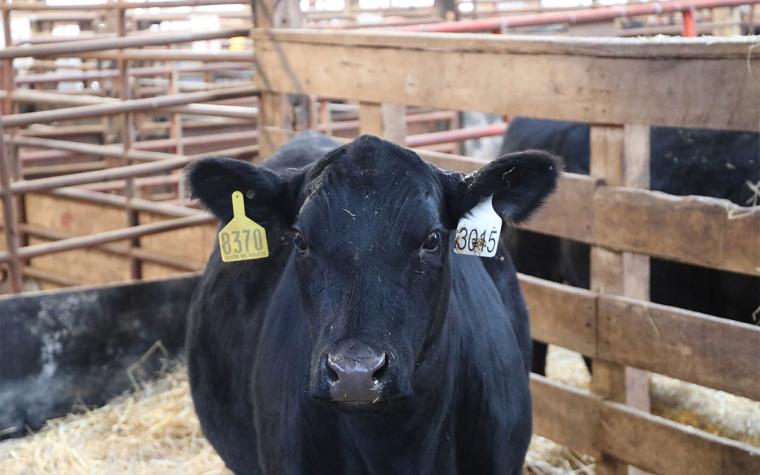
Genetics for a better cow herd
Use genetics and breeding strategies to improve cow fertility and build a stronger, more productive herd.
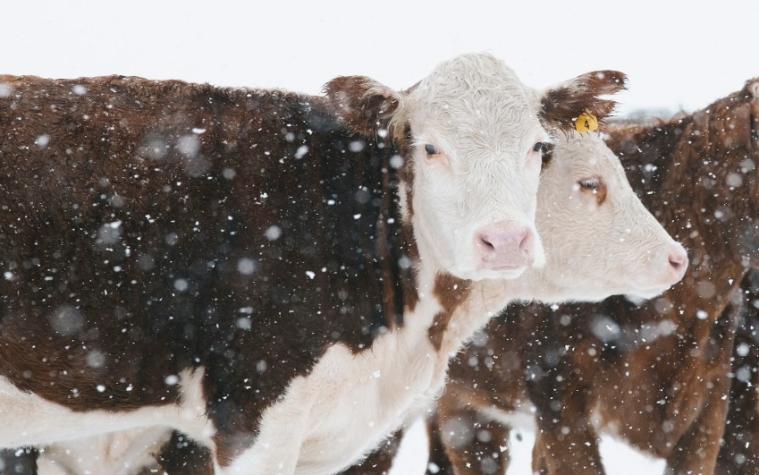
Cattle care during prolonged extreme cold
MARSHFIELD, Mo. – Cold weather has moved into Missouri quickly with no plans of leaving soon, according to forecasts.
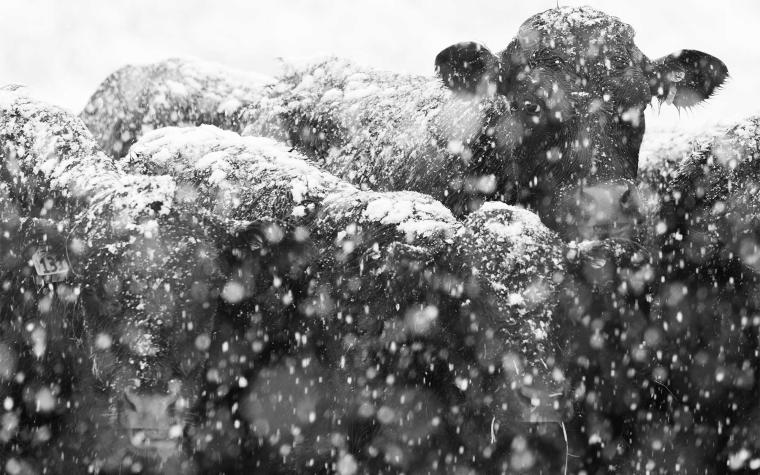
Prepare cattle for frigid temperatures
COLUMBIA, Mo. – Extremely cold weather, ice and snow are putting Missouri cattle at risk. Temperatures below zero degrees Fahrenheit are predicted, with the wind chill factor much lower in many parts of Missouri this week. As temperatures drop, producers need to ensure their cattle are kept safe in the harsh weather, said University of Missouri Extension state beef nutritionist Eric Bailey.
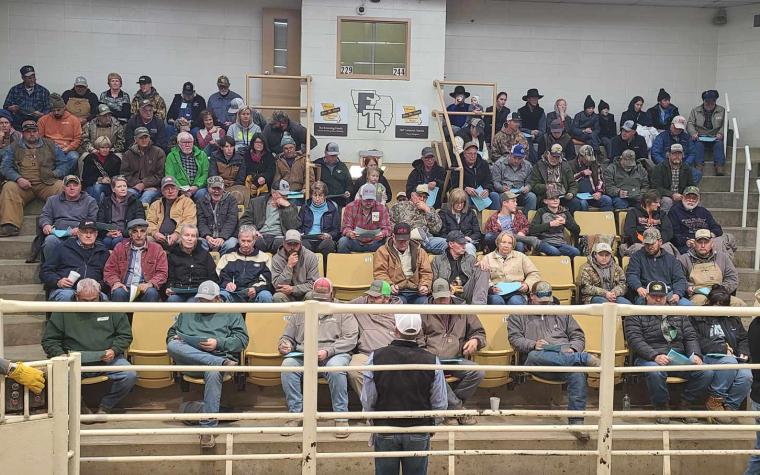
Final fall 2024 Show-Me-Select sale sets record
Palmyra’s final 2024 Show-Me-Select heifer sale set a record with $1.16 million in sales as buyers purchased 323 bred heifers.
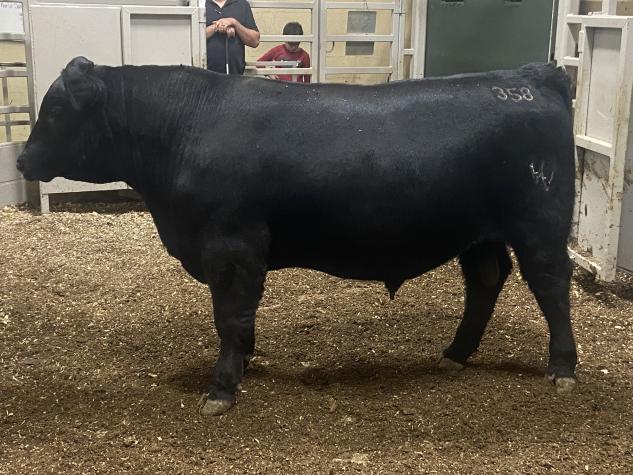
Strong bull sale in Springfield
Springfield's bull sale achieved strong prices, with 26 bulls averaging $5,458 each, highlighting a robust cattle market.
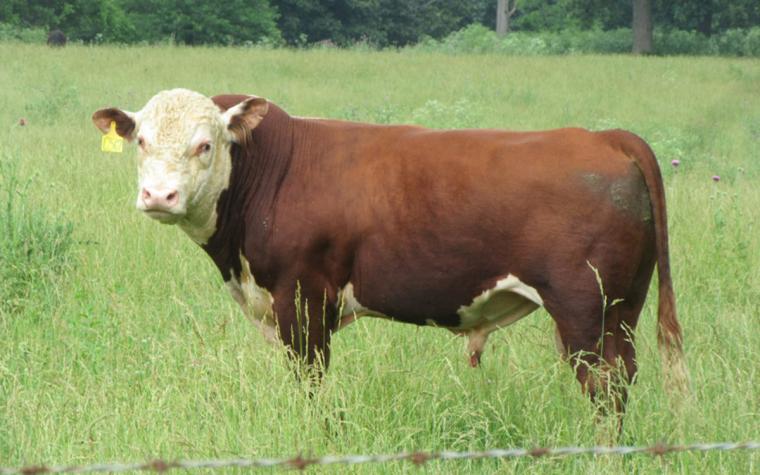
Results from fall SW Mo. Bull Breeding Soundness Exam Days
STOCKTON, Mo. – “It is important for reproductive performance and profitability of the cattle operation to identify bulls that are not sound breeders and replace them prior to the breeding season,” says Patrick Davis, University of Missouri Extension livestock field specialist. This is the goal of the Southwest Missouri Fall Bull Breeding Soundness Exam (BSE) Days, which also educate cattle producers on bull management for a successful…
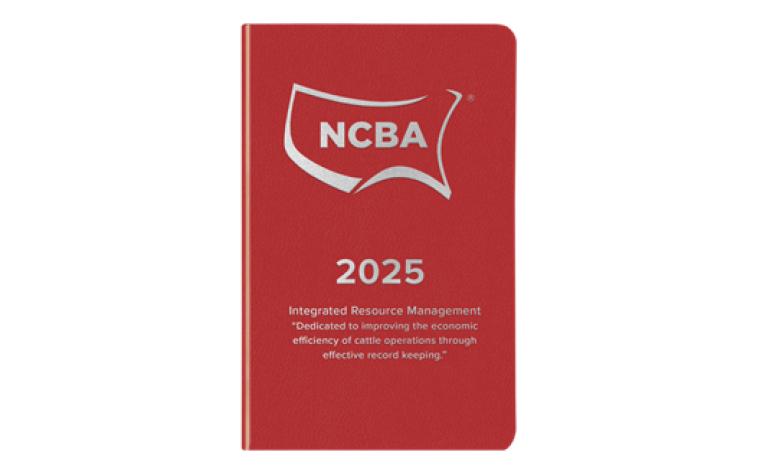
Pick up the 2025 Redbook at your local MU Extension center
STOCKTON, Mo. – “Recordkeeping is important to make management decisions for optimum cattle operation productivity and profitability,” says Patrick Davis, University of Missouri Extension livestock field specialist. Davis urges cattle producers to consider purchasing the 2025 pocket-size “Redbook” to aid in their recordkeeping. The books are available at county MU Extension centers for $8 per copy.
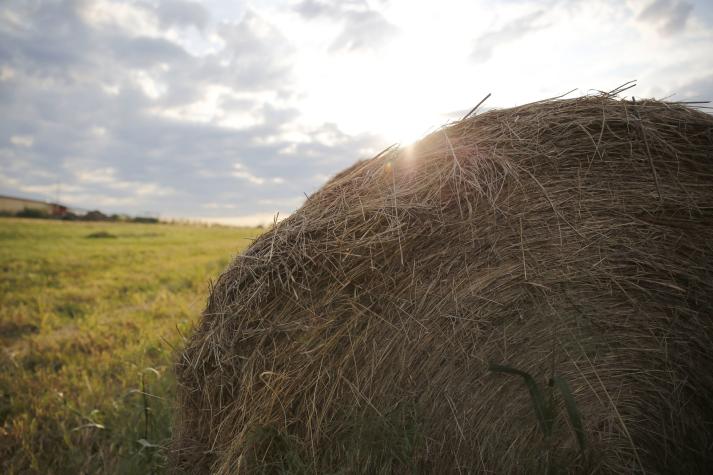
Three steps to prepare for winter feeding of livestock
Assess livestock feed needs, evaluate forage availability, and plan for necessary supplements to ensure adequate winter nutrition.
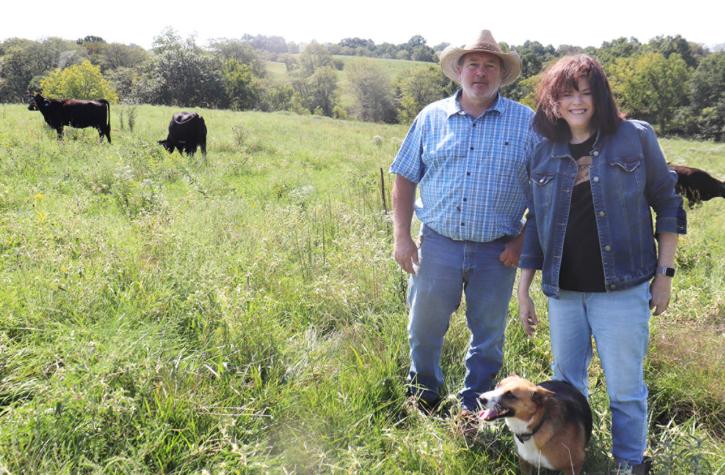
Forage, cattle producers embrace change in move from Colorado to Missouri
Tad and Kim Carnahan transitioned from Colorado to Missouri's agriculture, adopting rotational grazing and sustainable practices to enhance their cattle operation.
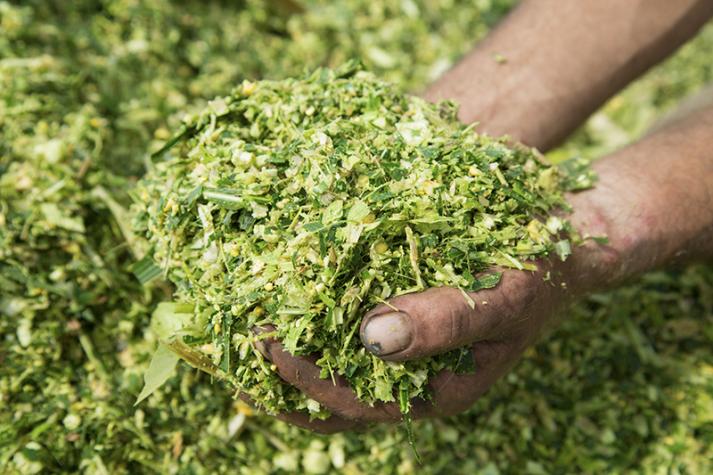
Buying corn silage to feed beef cows in winter
Farmers consider corn silage for winter: higher in digestible nutrients than hay, but costlier and spoilage-prone unless stored and hauled carefully.

Rebuild your cow herd with proper heifer development
Boost your herd’s success with proper heifer development, nutrition, breeding, and health management strategies.
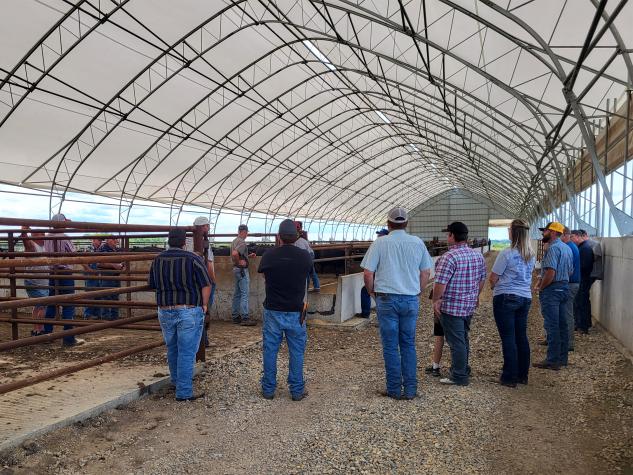
Record-breaking attendance at eighth MU Extension Feedlot School
Over 65 cattle producers from Missouri, Iowa, and Illinois attended the Feedlot School in Kirksville, marking a significant increase in participation.
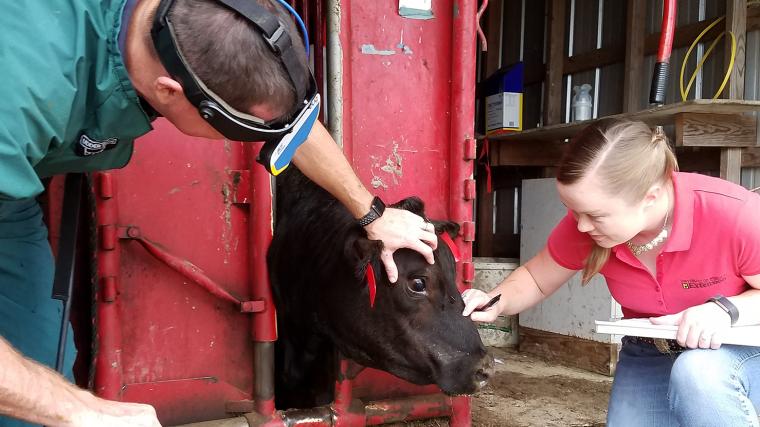
MU Extension offers tips on safely handling livestock
Learn safe livestock handling—use caution, read animal behavior, maintain equipment, and reduce risks during feeding and transport.
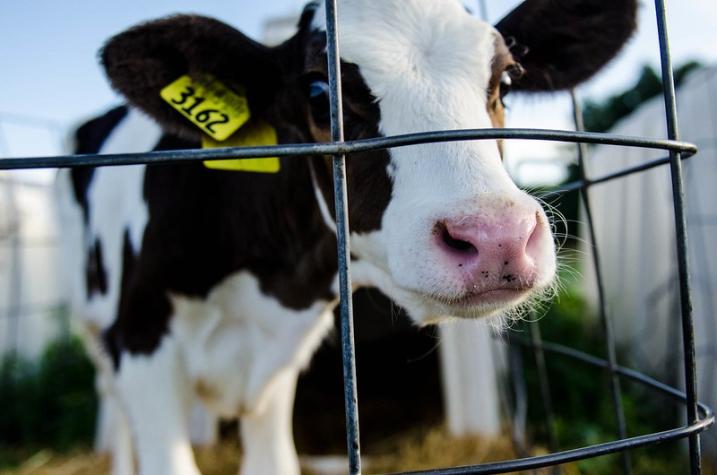
Early preparation equals a successful breeding season
Prepare your herd with exams, vaccinations, nutrition, and breeding plans for a successful cattle breeding season.
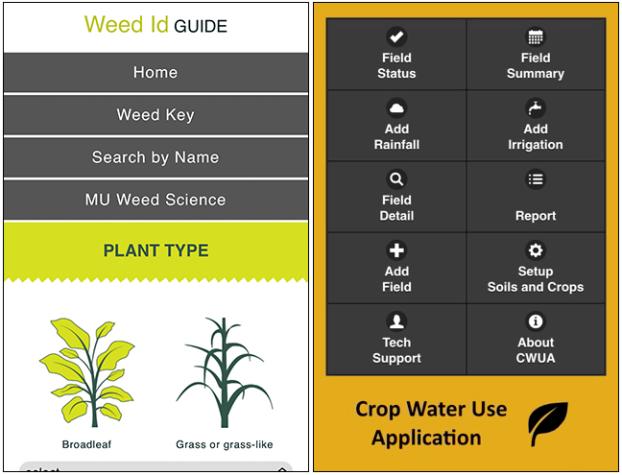
MU Extension offers listing of farm apps
Explore mobile tools to support farm decisions—from weather and crop models to weed identification and water use planning.
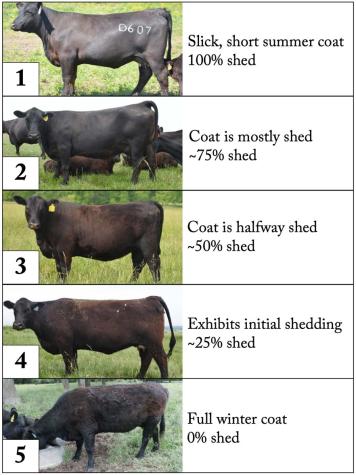
How hair shedding scores can help select cattle for heat stress
Learn how hair shedding scores help identify cattle with heat tolerance, improving herd productivity, profitability, and sustainable management.
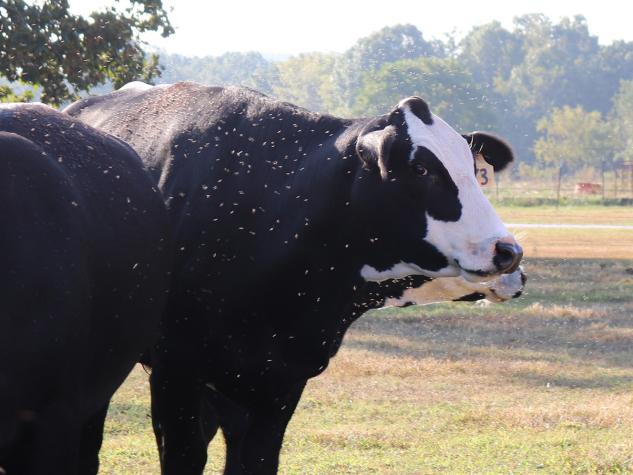
Managing pinkeye in cattle
Learn strategies to prevent and manage pinkeye in cattle, including fly control, vaccination, and early detection.
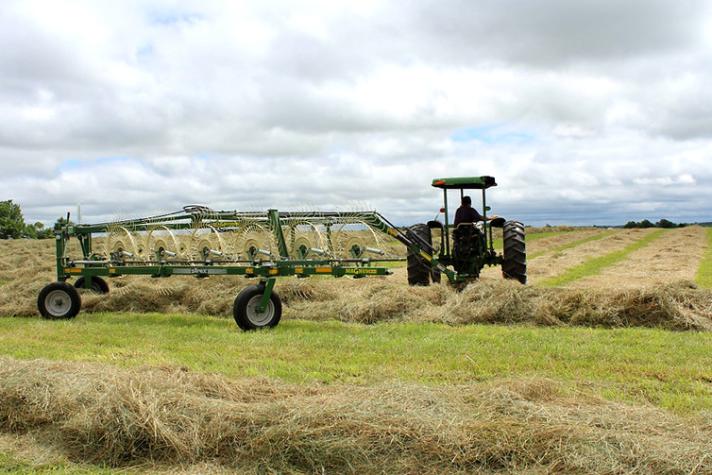
Is rained-on hay still good?
Rainfall affects hay quality, yield, and digestibility. Learn when rained-on hay can still be useful and why testing is important.